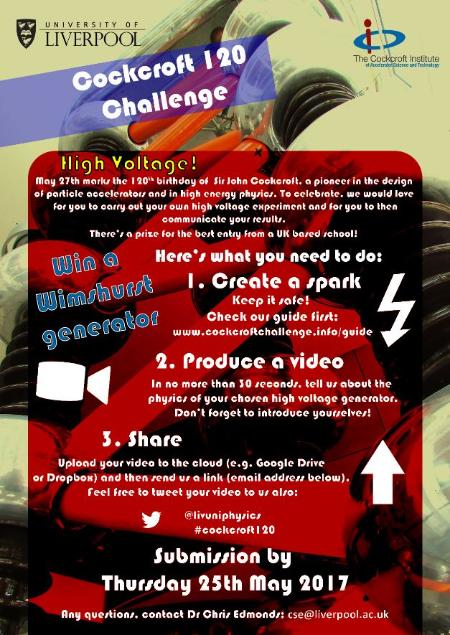Cockcroft 120 Challenge – Win a Wimshurst generator for your school!

The University of Liverpool Accelerator Science Cluster, a key academic research group based at the Cockcroft institute, presents the Cockcroft 120 Challenge...
May 27th marks the 120th anniversary of the birth of Sir John Cockcroft, the Nobel prize winner after whom the Cockcroft Institute is named. Cockcroft, alongside Ernest Walton, was awarded the 1951 Nobel prize for the splitting of atoms, a feat made possible by the development of the Cockcroft-Walton voltage multiplier. The voltage multiplier allowed Cockcroft and Walton to generate the 100’s of thousands of volts needed to accelerate the charged particles used in their experiments.
To celebrate Cockcroft’s birth, we are asking you to conduct your own high voltage experiment and then to communicate your results. Electrostatic generators, such as Van de Graaff machines, can generate 100 kV+ at very low current, meaning that high voltage experiments can safely be carried out in the classroom. Remember, it requires around 30 kV for every cm of a spark’s length!

We invite you to create a video of up to 30 seconds in length that demonstrates a high voltage experiment and offers some explanation of the physics involved. The creation of a spark is offered as a suggestion, but feel free to follow your own path! You may also want to consider hair raising experiments using a Van de Graaff generator, or the exploration of a fine beam tube.
The competition is open to all. The best UK based school entry will win a Wimshurst generator.
Keep up to date with competition developments by registering: www.cockcroftchallenge.link/register
For further information check out our guide
www.cockcroftchallenge.link/guide
or contact Dr Chris Edmonds cse@liverpool.ac.uk